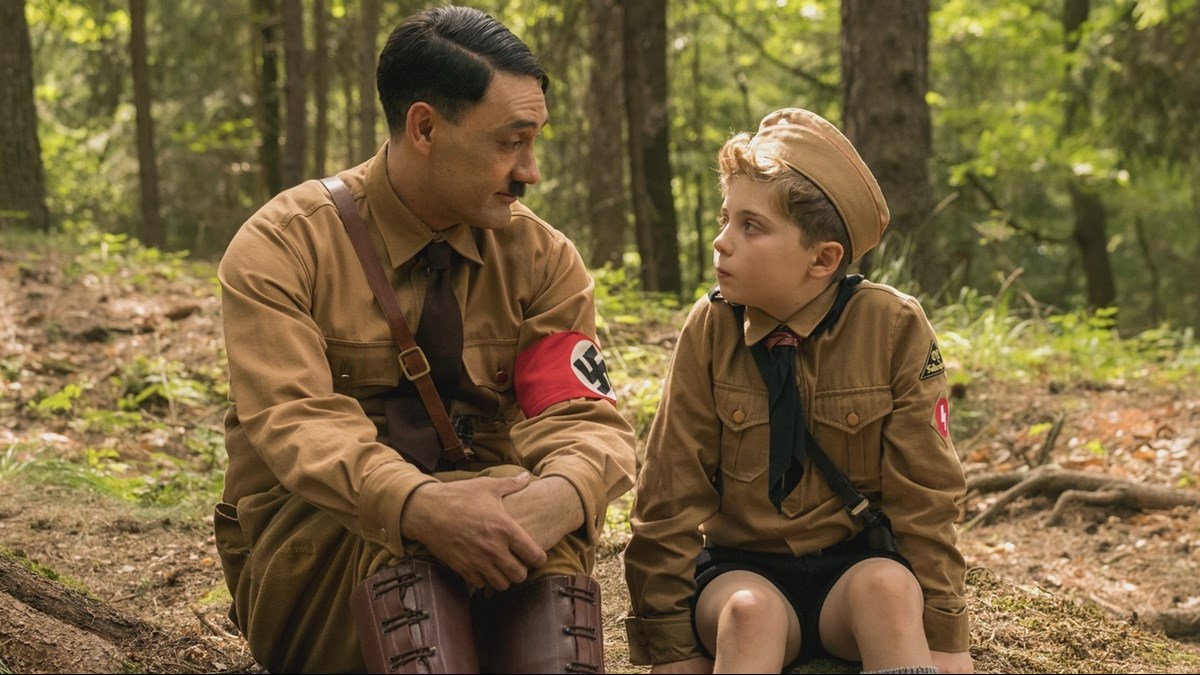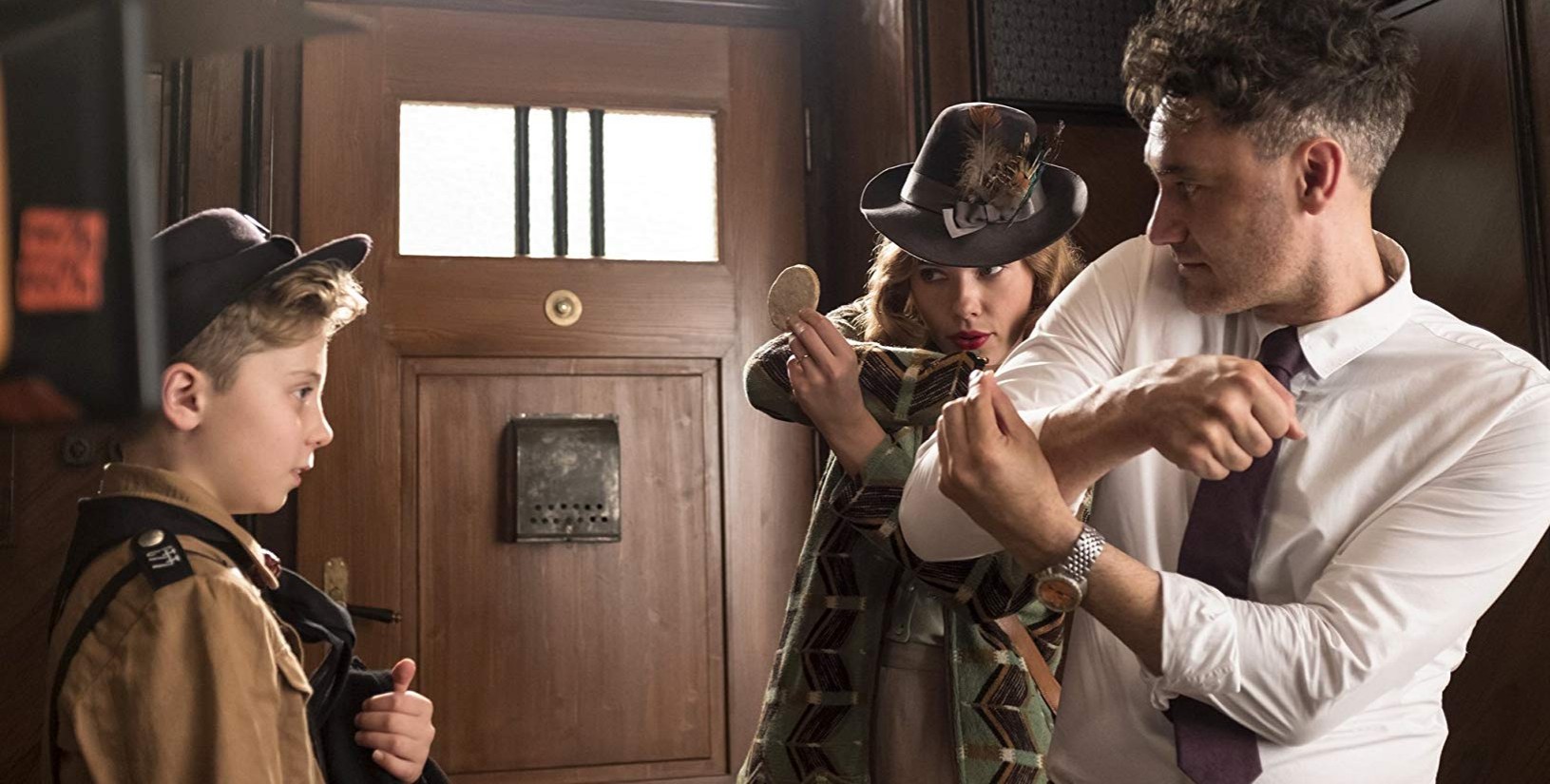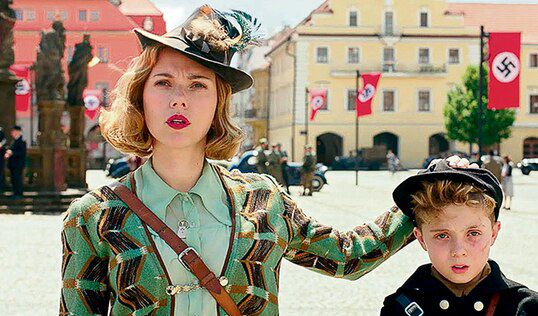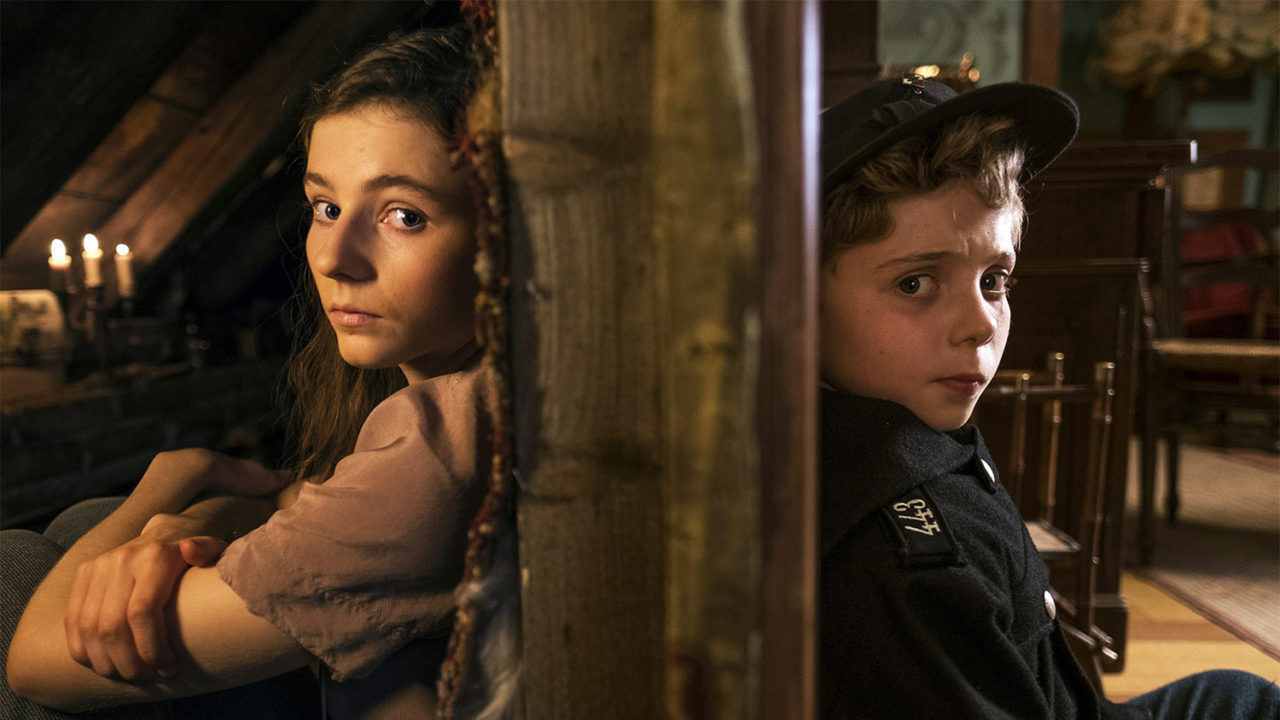Try to imagine the following movie pitch: A ten year old German boy enamored with the values of a Nazi regime during World War 2 tries to find his place in the world with the comfort of an imaginary friend and all that in the form of a Coming-Of-Age story. …But with fascism, anti-Semitism, and the whole Holocaust thing. You get the idea. Oh…and that boy’s imaginary friend? Adolf Hitler himself. This may or may not be an oversimplification of how exactly Taika Waititi sold his idea, but clearly the powers that be at Fox searchlight bought it.

Waititi’s talents are not limited to good movie pitches. He first popped on the mainstream radar with 2017’s “Thor: Ragnarok”, a film that revitalized the Thor franchise with a fusion of irreverent humor and bombastic spectacle. Indie-film enthusiasts can go further back to 2014’s “What We Do in the Shadows” and cite Waititi’s ability to weave a tongue in a cheek narrative in subject matters not known for their humor. His many appearances during the press junket and award season circuit introduced us to a person with a self-effacing, quirky charm. He is clearly a person that doesn’t take himself too seriously.
To that end, the reactions to the early trailers of “Jojo Rabbit” were met with some trepidation. The current trend in Hollywood has been to take a more somber approach with films such as “Schlinder’s List”, “The Pianist” or “The Reader”. Suddenly, a newer generation of film audiences is introduced to the first wide release Nazi-era satire in decades. The same filmmaker that allowed us to laugh at superheroes and monsters now wants us to laugh at a real monster. Questions were asked, tweets were made, and pearls were clutched.

This is not the first time a satirical take on Nazi era Germany was committed to film. Charlie Chaplin was considerably ahead of the curve with the 1940 film “The Great Dictator”. Mel Brooks had a long and successful run with “The Producers”, which gave audiences the “play within a play” format, entitled Springtime for Hitler. “Hogan’s Heroes” – an American sitcom which ran for six seasons was about allied soldiers in a German prisoner of war camp. “The Great Dictator” has been preserved in the United States National Film Registry. “The Producers” would eventually win twelve Tony awards and “Hogan’s Heroes” would win two Emmys. Satire and specifically Nazi-era satire has had a proven track record both critically and commercially.
Yet, social media has created a bit of a paradigm shift. Information, discussions and opinions are all shared in real time and this generated a unique burden on Waititi few before him ever experienced. The film was poised to face a great deal of scrutiny, and to a lesser extent, so too was the very notion of satire in film. Casting himself as the eponymous monster was the first of many bold and creative decisions. In fact, the casting of this film is one of its greatest strengths. Roman Griffin Davis as Jojo himself captures wide-eyed innocence of youth on the cusp fanaticism. Scarlett Johansson deftly demonstrates she is ready for a post MCU world with a well deserved Oscar nominated performance. The always reliable Sam Rockwell delivers a performance that is equally measured with silliness and sensitivity. And perhaps the most overlooked performance of the year in any film of 2019 is Thomasin Mckenzie as the Jewish girl in the attic, Elsa.
Taika Waititi has managed to stack his film with a talented cast and as a result, much of the surprising charm of “Jojo Rabbit” stems from the strength of good, ensemble based story telling. Yet, the true magic of this film is found in the unorthodox rapport between Jojo and Adolf. We know immediately that Adolf is an absolute buffoon and at no point does Waititi make any attempt at empathy with both the performance and direction. We immediately see Adolf for what he is, an avatar for the absurd and abhorrent.

The first half of the film lulls the viewer into an unnatural coziness reminiscent of a Wes Anderson film. We are fully ensconced into Jojo’s horribly misguided and manipulated idealism at this point. As we follow his adventures and mishaps in the Hitler youth, Waititi seems to be telling the audience: “see how stupid this all is? It’s ok to laugh…really!” The adult characters surrounding Jojo are still caricatures and the tone is set perfectly.
Things take a darker turn as reality begins to fray the edges of his quasi-fantasy world. We learn that his mother is actually an anti-Nazi sympathizer and she is harboring a Jew by the name of Elsa. Jews were a monstrosity fueled by hate-filled propaganda with no basis in reality until now. As he confronts Elsa, he confronts himself and his relationship with his imaginary Adolf. Jojo’s private world collapses in perfect sync with the collapse of Nazi Germany around him. Sacrifices are made and people die, but Jojo’s humanity survives with the help of his newfound Jewish friend. Jojo finally severs all ties with Adolf in the most cathartic scene this side of “Inglourious Basterds”.
“Jojo Rabbit” successfully weaponizes humor and negates the power of evil. Laughter of course, is a natural by product of any well made satire, but satire in all its forms is designed to illicit a reaction in the audience. This reaction is the very litmus test of where a global audience stands in its current political and social discourse. A tender and at times hilarious story about a ten year old boy finding his place in a war torn world 75 years ago is as relevant as ever.

